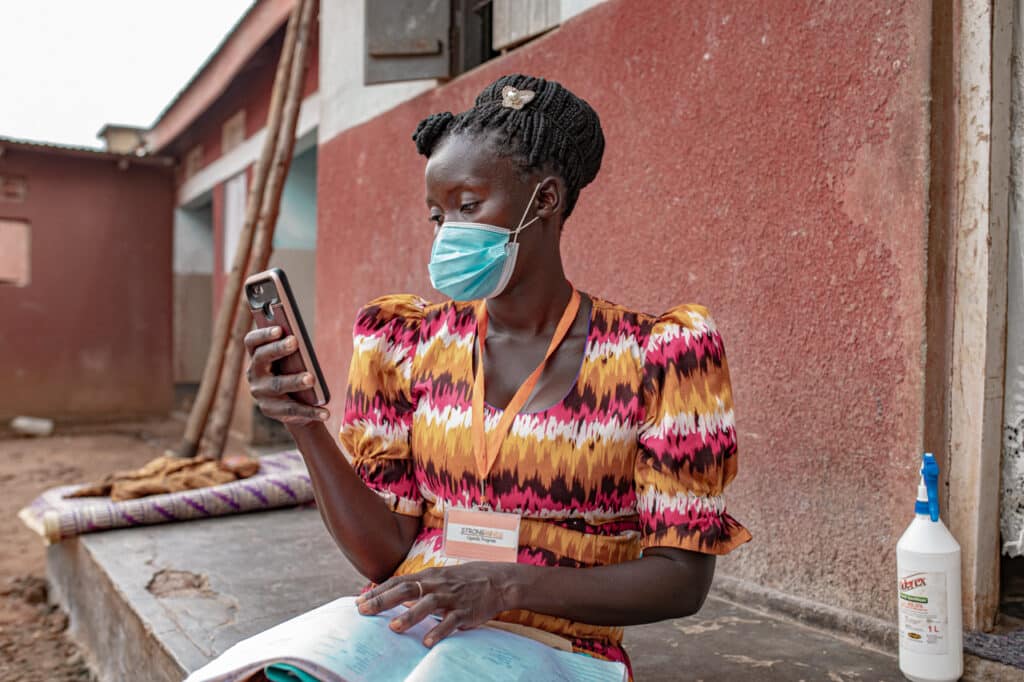Mental Health During Disease Outbreaks: International Day of Epidemic Preparedness
When we think about epidemics, we often focus on the physical symptoms and the race for medical solutions, yet we often overlook the toll epidemics take on mental health. While disease outbreaks cause extreme mental distress, good mental health can offer a protective factor in coping with future epidemics.
The Impact Epidemics Have on Mental Health
Epidemics don’t just attack bodies—they disrupt people’s lives. Families lose loved ones, communities face isolation, and many people experience financial hardship and food scarcity. For many, this results in anxiety, depression, grief, and trauma that can persist long after the outbreak has been contained.
Africa is no stranger to outbreaks—HIV/AIDS, cholera, ebola, mpox, and COVID-19 were infectious diseases that have been not only public health crises, but mental health emergencies.
Before 2020, mental health disorders (specifically depression and anxiety) were among the leading contributors to the global burden of disease, but during the first year of the COVID-19 pandemic, the global prevalence of depression and anxiety increased by 25%.
Following the 2014 Ebola outbreak in West Africa, one survey indicated that 48% of respondents reported symptoms of mental health disorders.
People directly affected by epidemics are often at a higher risk of short, and even long-term, mental health impairments, according to a 2020 study(1). Trauma stemming from epidemics is often linked to major depressive disorder and substance abuse, resulting in long-lasting implications that can persist for years to come.
Mental Health as Part of an Epidemic Response
In many cases, mental health and psychosocial support is not integrated into epidemic responses, but it should be. Fear of infection, loss of loved ones, and economic disruption can lead to widespread psychological distress, and addressing these challenges is crucial to ensure the overall well-being of affected populations.
Research also shows that people with mental health conditions are more likely to have a chronic health conditions, making them even more susceptible to disease outbreaks.
The mental health implications of epidemics are vast, yet the protective role that good mental health plays in mitigating their impact is often overlooked. Good mental health can equip people and communities with the psychological resilience and coping mechanisms needed to navigate challenges posed by public health crises by:
- Strengthening resilience: People are able to better adapt to stress, uncertainty, and adversity, and they can manage fear and anxiety more effectively, reducing panic-driven behaviors.
- Encouraging compliance with health measures.
- Supporting effective problem-solving skills.
- Enhancing social connectedness.
- Protecting physical health.
StrongMinds in Addressing Mental Health During Epidemics
During the COVID-19 pandemic, we continued to offer depression treatment during lockdown in the form of teletherapy. Our experience providing mental health treatment during a public health crisis supports all the evidence that psychological support is a vital part in epidemic responses.

During interviews with clients, most showed significant mental health decline due to the current health situation, and evaluators noticed that there was a specific link between worsened mental health and lack of income, as well as social isolation. We also saw reports of somatic symptoms, such as heart pain, high heart rate, high blood pressure, and difficulty breathing when clients felt extremely stressed. People who exhibited these physical symptoms found themselves in a vicious cycle: poor mental health caused or worsened physical health, which then compounded emotional stress.
Ultimately, our teletherapy approach proved successful, showing that clients experienced the same average symptom reduction as in-person clients, while also illustrating the critical need of mental health intervention during widespread public health emergencies.
Long-Term Impacts and Building Resilience
Neglecting mental health care during epidemics has far-reaching consequences. Depression can hinder economic recovery, reduce school attendance among children, and erode social cohesion. Addressing these issues helps people regain their sense of agency and contributes to broader community resilience.
Improving mental health strengths resilience by fostering solidarity and providing coping strategies for dealing with future crises. When people feel supported and empowered, they are more likely to engage in rebuilding efforts, reenter the workforce, and reintegrate into their communities.
By recognizing mental health as an essential part of epidemic responses, we create stronger, more sustainable communities that can recover faster and stand strong in the face of adversity.
References
